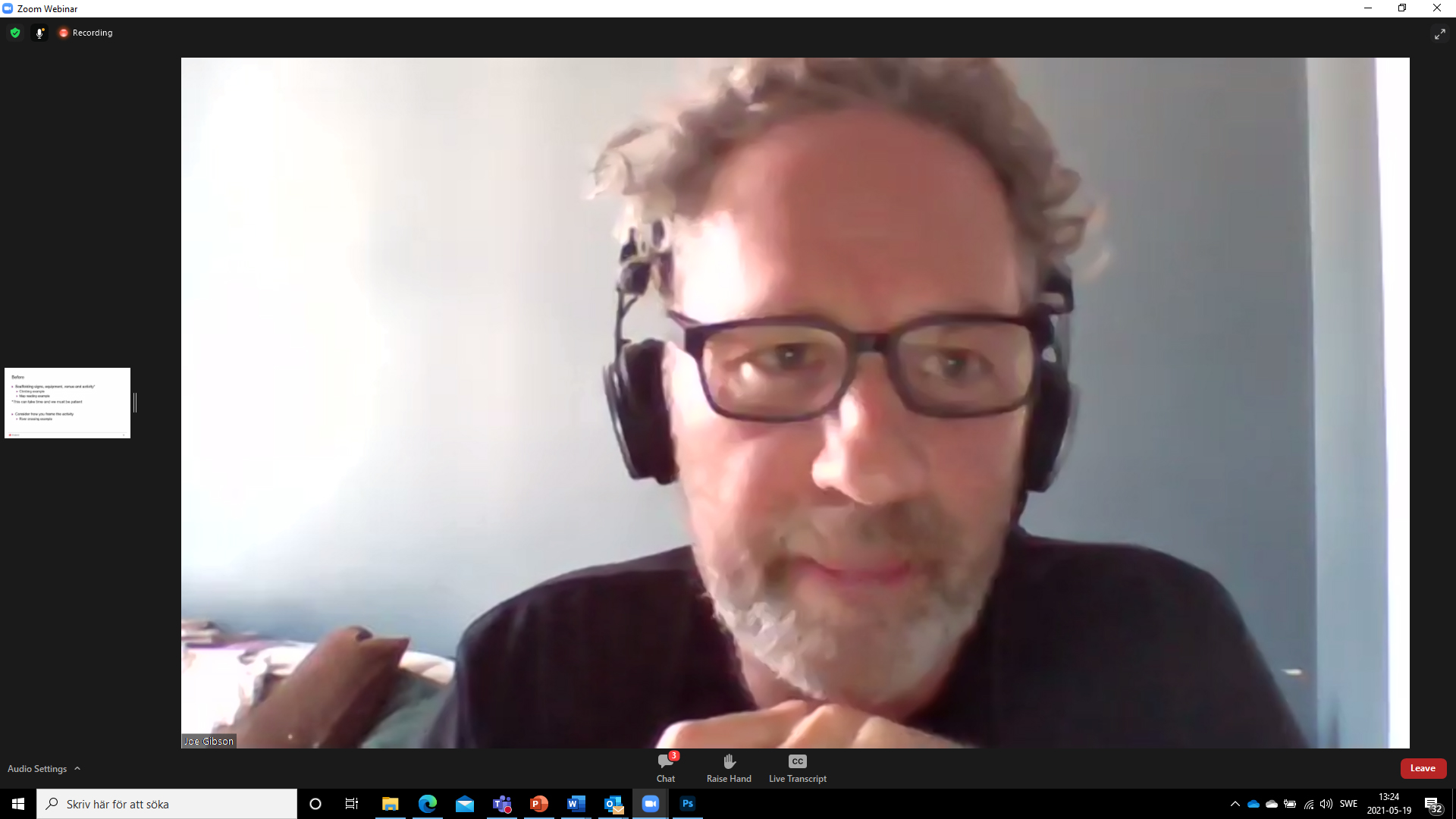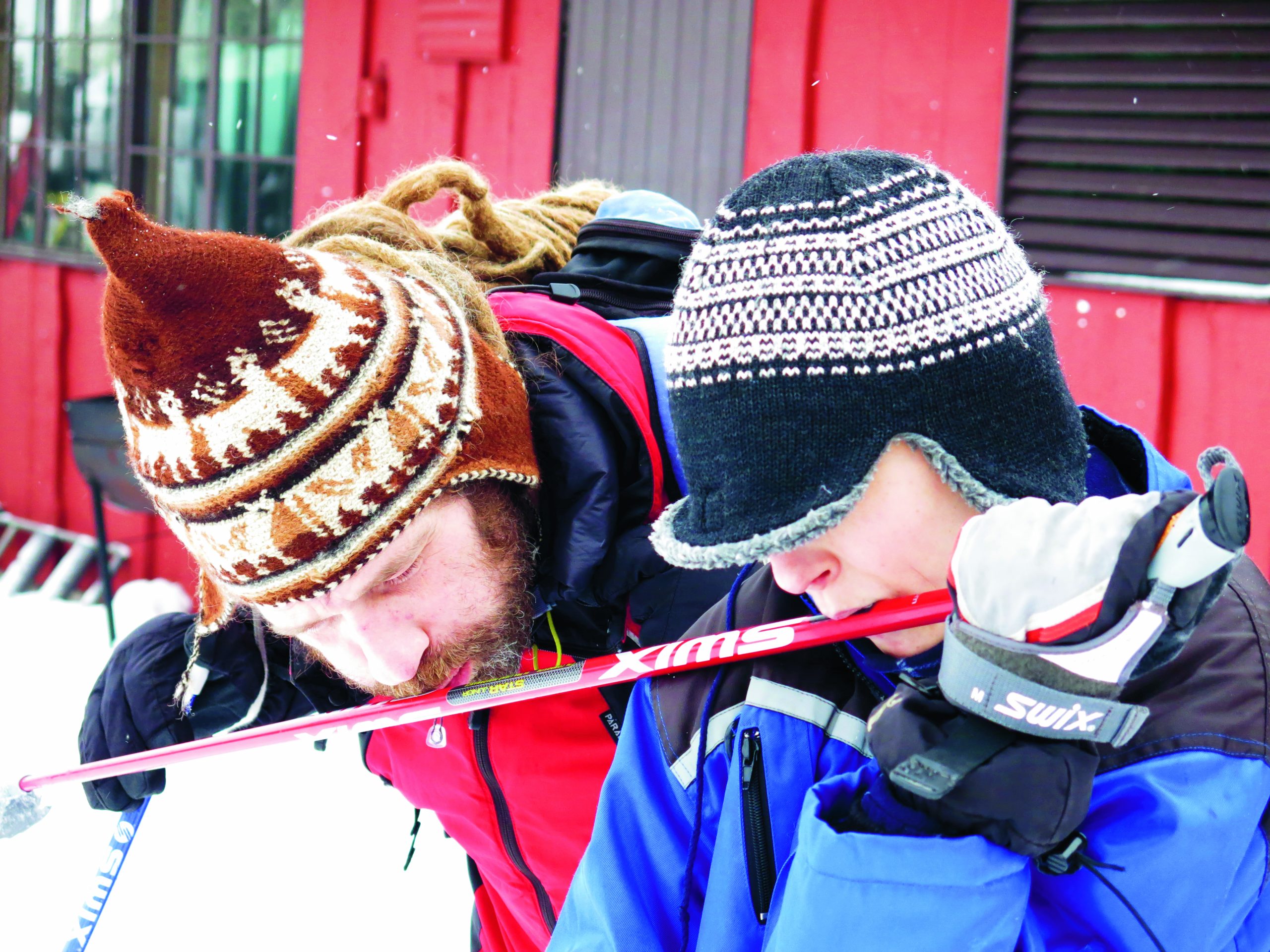Outdoor activities can be used to develop tactile language
Dövblindhet
27 maj 2021
"To develop language we need to find things that we want to talk about, like sharing a genuinly interesting activity outdoors", says Joe Gibson, and draws from his long experience in working with persons with congenital deafblindness, observing how outdoor activities help in developing tactile language.

In our webinar on May 19, Language development in the tactile modality through outdoor activities Joe Gibson explained the beenfits of outdoor activities for children with deaflindness.
To communicate and develop our language we need to have something interesting to talk about. If something is important to us we want to tell other people.
– Language cannot happen in isolation, says Joe Gibson, PhD and teacher at Diamanten skole for elever med døvblindhet in Oslo, Norway.
Gibson has for many years developed outdoor activities for people with deafblindness and he draws on examples from working in both Scotland, Norway and during the Deafblind International Outdoor Network weeks, and sees many benefits in using outdoor activities.
By sharing an outdoor activity together, we create a mutual experience and a topic for conversation.
– If we were standing with feezing cold water up to our waist together with the person with deafblindness we will also have felt it and shared the experience. We were there when it happened, says Gibson.
Making a story out of an activity

– The activities lend themselves to be described in big bodily movements, and there is also lots of equipment that we can use to talk about. And lots of things in the natural environment are tactily interesting.
But to be able to take these aspects of an outdoor activity and use for language development the communication partner also needs to give the activities a storyline. Framing activities narratively can help with the understanding of what is happening and makes it easier to later retell and share the story with others.
– I focus on the benefits to language development, but outdoor eduction can also cover health and learning goals as well as issues such as identity, says Gibson.
Climbing shows cognition
But outdoor activities can not only assist in developing tactile language, they can also help us detect learning potentials by revealing cognition in persons with communication which is hard to read, for example children with congential deafblindness.
Next week, on Wednesday June 2, Joe Gibson is coming back to give a second webinar, Climbing the wall: Assessment of cognition through video analysis. This time with a slightly different angle on the use of actitivites. In this webinar the focus is on a project with one pupil where climbing was used to show cognition.
– Climbing was relevant to this pupil, but other activities might suit other pupils better, says Gibson.
Standard tests are not useful
Assessment of cognition is important for creating the right strategies to help a child develop a tactile language. Often when it comes to children with congenital deafblindness it is difficult to assess the persons cognition, since regular tests cannot be used, as in the example Gibson refers to.
– The focus was not to test for or measure cognition, but to see evidence of cognition in a case where standard tests would not be appropriate, says Gibson.
By using an activity as climbing as an alternative way, Gibson and his colleagues could show cognition, and thereby reveal hidden potentials. The same theoretical principles could apply to other children where cognition is difficult to measure using standard tests.
”All pupils here use the climbing wall”
The findings are compiled in the book Revealing hidden potentials – Assessing cognition in individuals with congenital deafblindness, produced by the Cognition Network, one of the networks coordinated by Nordic Welfare Centre to collaborate and disseminate Nordic knowledge in the field of deafblindness.
In the webinar on June 2 Gibson will discuss this research with the co-authors Torill Gullvik, Anne Nafstad, Odd-Erik Madsen, Olai Johnsgård and Lynn Skei and stress the relational qualities and cognitive functions that they have observed.
They will finish by discussing what the findings of the project means regarding cognition and for the pupils daily school life.
– I would recommend climbing as an activity for all children, says Gibson. All the pupils here at the school in Oslo use the climbing wall.
